Lois Lowry Quotes & Sayings (Page 2)
Lois Lowry quotes and sayings page 2 (writer). Here's quote # 11 through 20 out of the 63 we have.
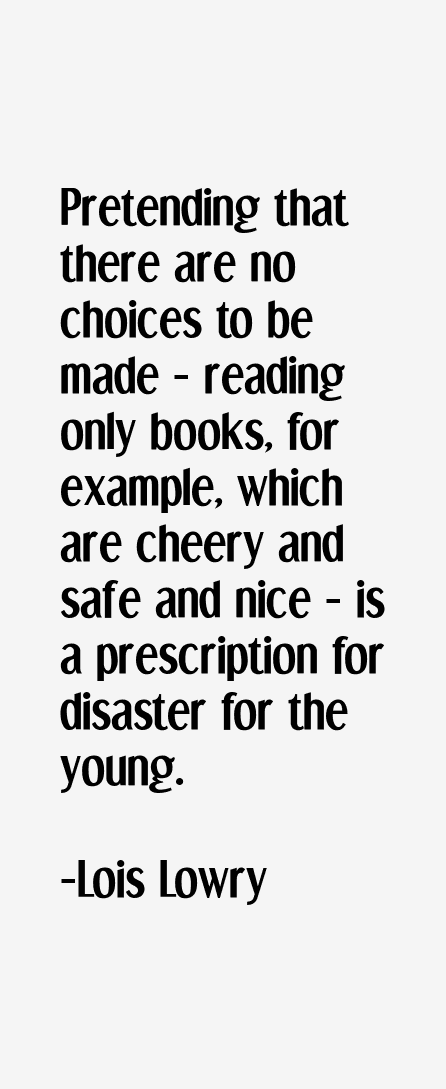
“Pretending that there are no choices to be made - reading only books, for example, which are cheery and safe and nice - is a prescription for disaster for the young.”
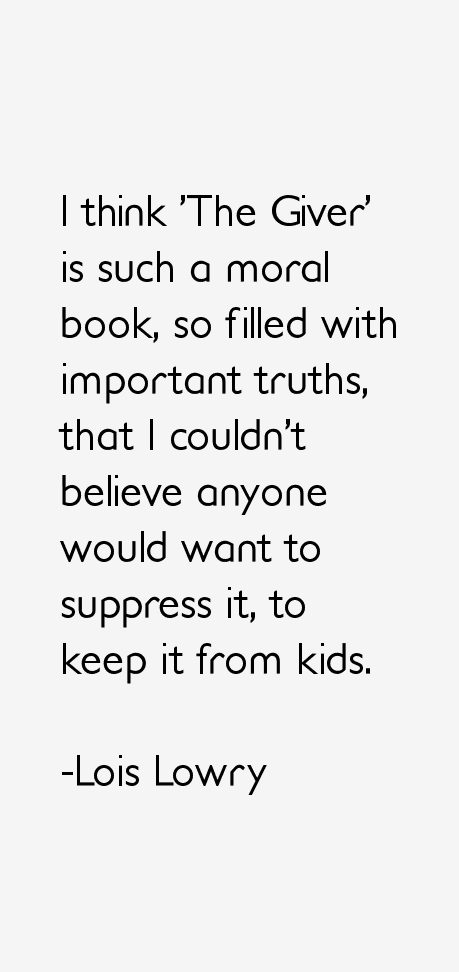
“I think 'The Giver' is such a moral book, so filled with important truths, that I couldn't believe anyone would want to suppress it, to keep it from kids.”
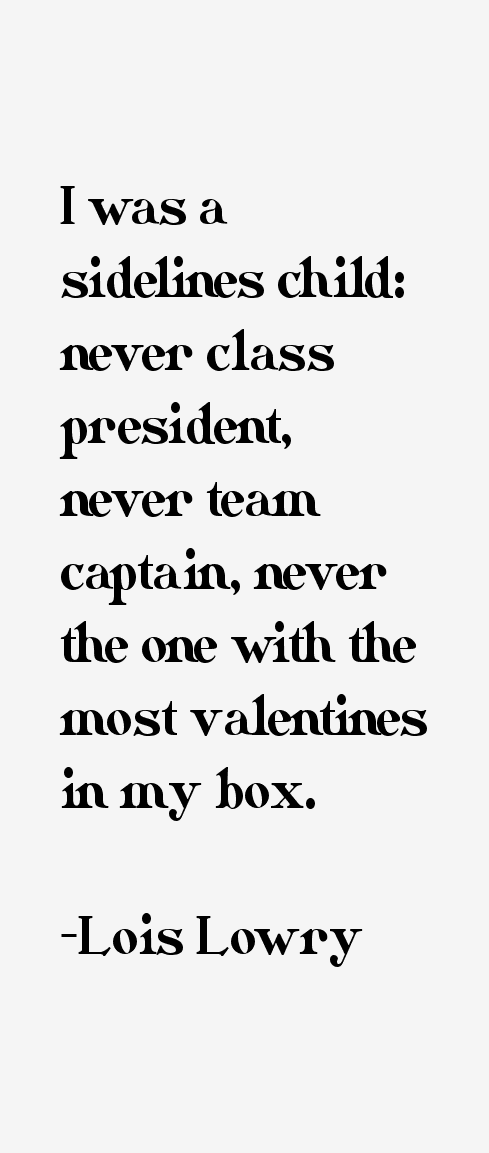
“I was a sidelines child: never class president, never team captain, never the one with the most valentines in my box.”
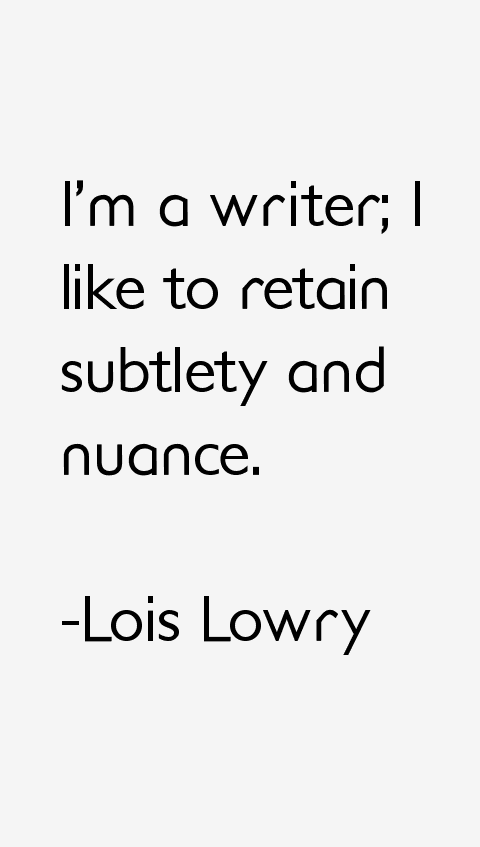
“I'm a writer; I like to retain subtlety and nuance.”
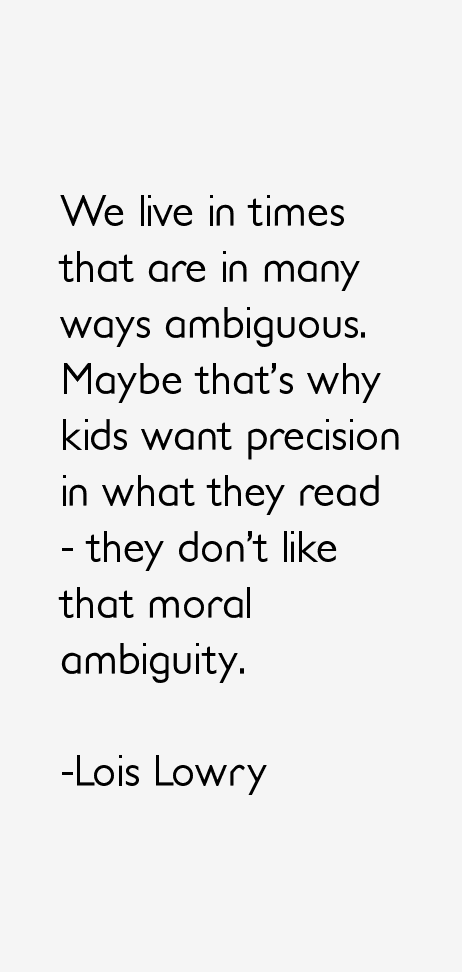
“We live in times that are in many ways ambiguous. Maybe that's why kids want precision in what they read - they don't like that moral ambiguity.”
“I often compare myself as a kid to my own grandchildren, who are around 11 and 14 now. That's the age kids usually read my book. And I remember myself; we'd gone through a world war. My father was an army officer so I was aware of what was going on. But I wasn't bombarded with images of catastrophe like many kids are today.”
“I've always been interested in medicine and was pleased when my brother became a doctor. But after thinking seriously about that field, I realized that what intrigued me was not the science, not the chemistry or biology of medicine, but the narrative - the story of each patient, each illness.”
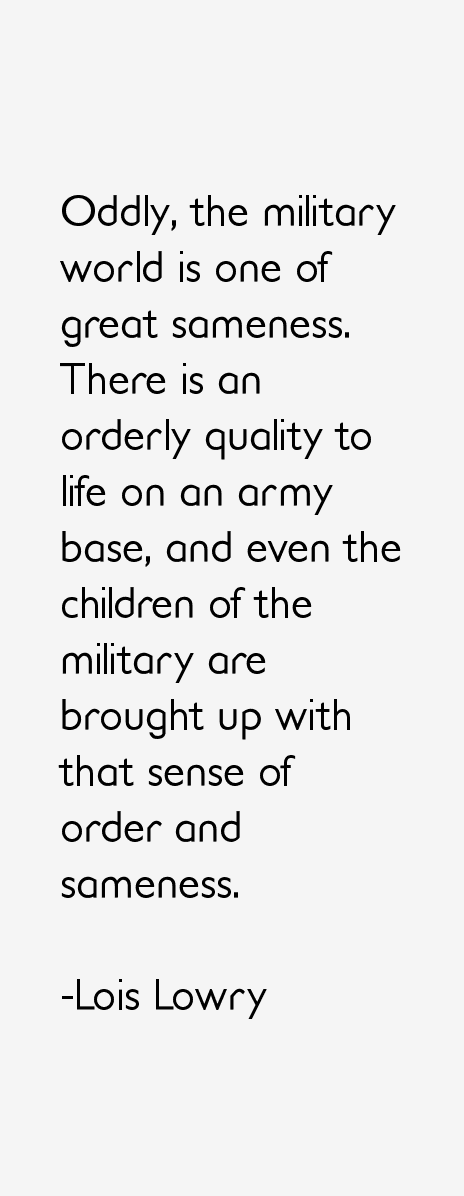
“Oddly, the military world is one of great sameness. There is an orderly quality to life on an army base, and even the children of the military are brought up with that sense of order and sameness.”
“People are starting to refer to 'The Giver' as a classic, but I don't know how that is defined. But if it means that 10, 20, 50 years from now kids will still be reading it, that is kind of awe-inspiring.”
“I don't set out to transmit a message. I don't write with a political point of view. There are no religious overtones. Looking back at my books, I can say, 'Oh, yes, it is there.' But it's not in my mind when I write.”
Lois Lowry Quotes Rating
No Ratings Yet
Leave A Comment
























